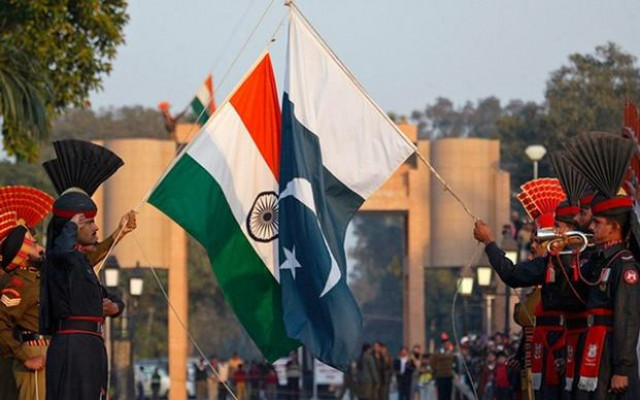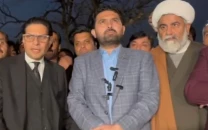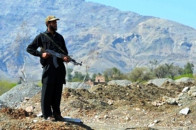NSC convened as Pakistan recalls HC from India
Highest security panel to discuss worsening ties with Delhi

Representational image. PHOTO: REUTERS
India has already called back its envoy a day after the Pulwama attack that left at least 46 Indian security officials dead in one of the worst attacks in over three decades in Indian Occupied Kashmir.
The Foreign Office in a statement confirmed that Sohail Mahmood, the high commissioner to India, had been recalled for ‘consultations’ amid deterioration in ties between the two nuclear-tipped neighbours.
Officials said the envoy would brief the civil and military leadership about the current situation in India.
Stop blaming Beijing, Islamabad for terror attacks: Chinese state media urges India
Pakistan is expected to respond to the Indian threats after the high-powered National Security Committee (NSC) meeting.
The meeting of the NSC, which is the highest decision-making forum on the issues of national security and foreign policy, is likely to take place this week.
It is going to be presided over by Prime Minister Imran Khan and attended by key federal ministers as well as the services chiefs.
The high-level huddle, according to sources, would review the situation arising out of the Pulwama attack.
The responsibility of the deadly attack was claimed by the banned Jaish-e-Muhammad. India, however, took no time in pointing a finger at Pakistan.
On Monday, Indian Prime Minister Narendra Modi once again said his country would take action against the perpetrators, adding that the time for talks was over.
Islamabad has strongly rejected the Indian allegations because these were made within a short time from the attack and without carrying out any investigations.
India’s kneejerk accusations blamed for destabilising region
The Foreign Office was of the view that the knee-jerk and preconceived accusations were nevertheless consistent with well-rehearsed tactics from Indian playbook after such incidents in the past.
Pakistan also insisted that JeM remains a proscribed entity in Pakistan since 2002 and Pakistan was implementing its obligations on sanctions implementation.
As for Indian assertions about “JeM claims of responsibility” and purported “video of the attacker”, Islamabad questioned the selective and self-serving standards that India adhered to in this respect.
It also drew attention to the clear dichotomy in the Indian position. On the one hand, India accepted the unverified social media content as “gold standard”.
In contrast, India chose denial when confronted with voluntary confessions and acceptance of responsibility by its serving Naval commander Jadhav for perpetrating terrorist violence in Pakistan.
“India needs to introspect and respond to questions about its security and intelligence lapses that led to this attack. India owes an explanation on reports of Adil Ahmed Dar’s arrest and custody since 2017,” a Foreign Office statement said.
In order to counter the Indian propaganda, Pakistan mounted a diplomatic offensive by reaching out to western countries as well as other nations.
In a recent interview, Foreign Minister Shah Mehmood Qureshi said Pakistan had already briefed the permanent members of the UN Security Council about the possibility of Modi’s government upping the ante before the parliamentary elections in India.
Qureshi; however, said the government was ready to cooperate with India provided it shared ‘actionable evidence’ on the Pulwama attack.



















COMMENTS
Comments are moderated and generally will be posted if they are on-topic and not abusive.
For more information, please see our Comments FAQ